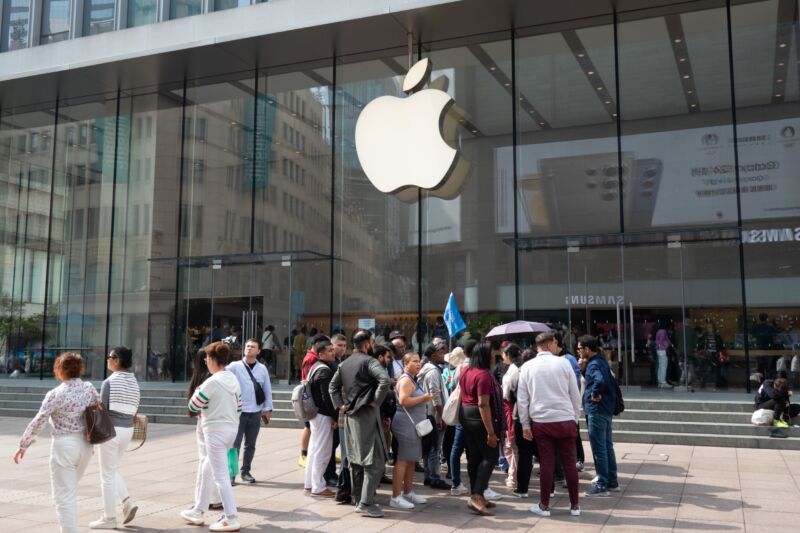
Apple said it complied with orders from the Chinese government to remove the Meta-owned WhatsApp and Threads from its App Store in China. Apple also removed Telegram and Signal from China.
"We are obligated to follow the laws in the countries where we operate, even when we disagree," Apple said in a statement quoted by several news outlets. "The Cyberspace Administration of China ordered the removal of these apps from the China storefront based on their national security concerns. These apps remain available for download on all other storefronts where they appear."
The Wall Street Journal paraphrased a person familiar with the matter as saying that the Chinese cyberspace agency "asked Apple to remove WhatsApp and Threads from the App Store because both contain political content that includes problematic mentions of the Chinese president [Xi Jinping]."
The New York Times similarly wrote that "a person briefed on the situation said the Chinese government had found content on WhatsApp and Threads about China's president, Xi Jinping, that was inflammatory and violated the country's cybersecurity laws. The specifics of what was in the content was unclear, the person said."
Meta apps Facebook, Instagram, and Messenger were still available for iOS in China today, according to Reuters. As Reuters noted, the four apps removed from Apple's China store were not widely used in the country, where WeChat is the dominant service.
Advertisement"These apps and many foreign apps are normally blocked on Chinese networks by the 'Great Firewall'—the country's extensive cybersystem of censorship—and can only be used with a virtual private network or other proxy tools," Reuters wrote. WhatsApp, Threads, Telegram, and Signal were reportedly still available on Apple devices in Hong Kong and Macau, China's special administrative regions.
US House moves on forcing TikTok sale or ban
China's crackdown on foreign messaging apps comes amid US debate over whether to ban or force a sale of the Chinese-owned TikTok. The House Commerce Committee last month voted 50–0 to approve a bill that would force TikTok owner ByteDance to sell the company or lose access to the US market.
US lawmakers argue that TikTok poses national security risks, saying that China can use the app to obtain sensitive personal data and manipulate US public opinion. House leaders are reportedly planning a floor vote on the TikTok bill on Saturday.
US lawmakers raised concerns about Apple's China ties after the recent cancellation of Apple TV+ show The Problem with Jon Stewart. Stewart reportedly told members of his staff that Apple executives were concerned about potential show topics related to China and artificial intelligence.
Apple pulled The New York Times app from its store in China in December 2016, saying that Apple was informed by China "that the app is in violation of local regulations." The New York Times news app is still unavailable on Apple's App Store in China, the Reuters article said.
"For years, Apple has bowed to Beijing's demands that it block an array of apps, including newspapers, VPNs, and encrypted messaging services," The New York Times noted yesterday. "It also built a data center in the country to house Chinese citizens' iCloud information, which includes personal contacts, photos and email."

















